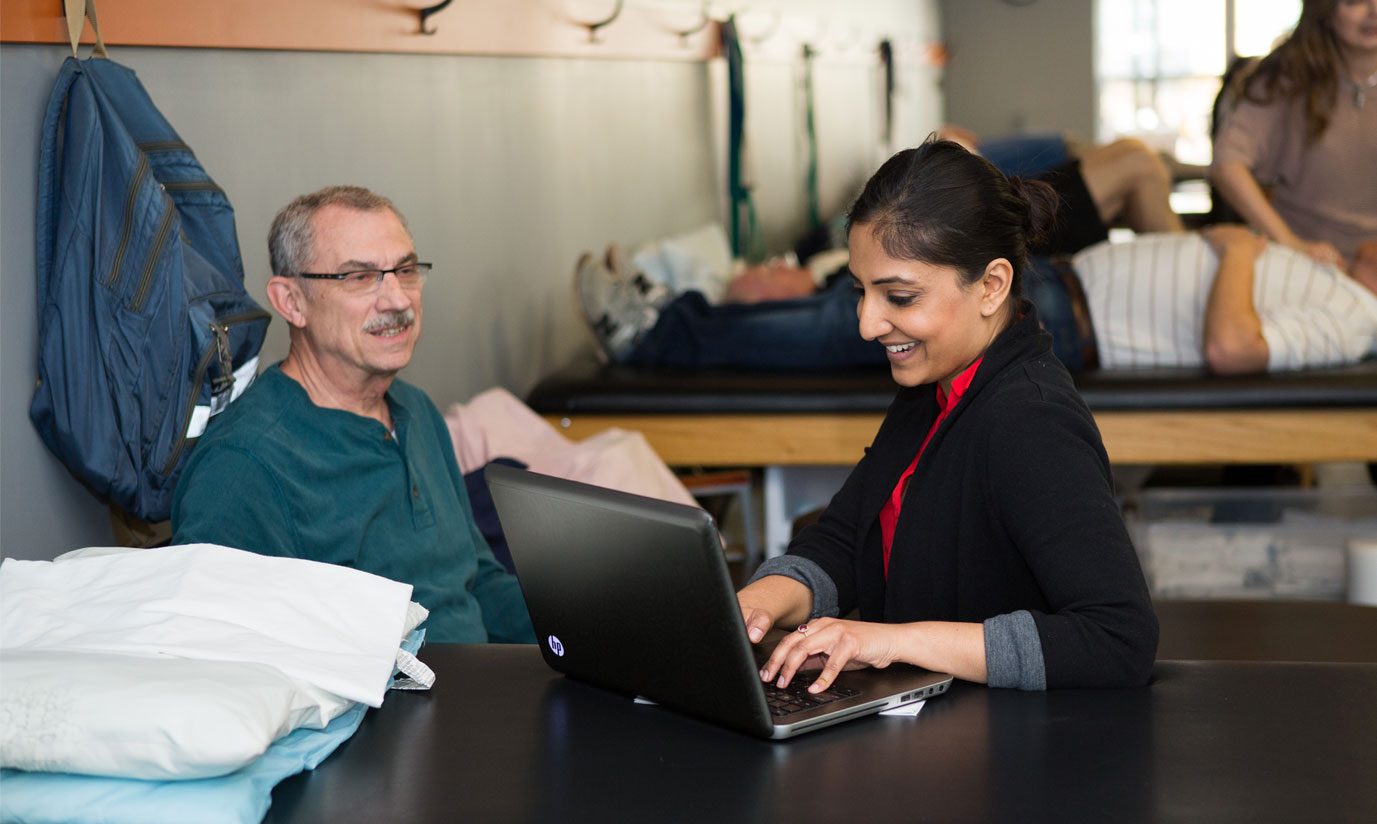
Applying a Population Health Framework in Physical Therapist Practice - Part 1: Introduction
This session will start the learner through the paradigm shift that begins to occur in critical thinking when rehabilitation for individuals is replaced with thinking about the health of their communities and populations. The course will provide an overview of population health frameworks and their applications in the profession of physical therapy using an interconnected ecological model to demonstrate a more global view of health determinants and how physical therapists might influence them. The focus of this initial webinar will be on actions physical therapists can take at the individual level, preparing the professional’s thinking to ultimately focus on actions taken at the family, community and societal levels to be covered in future offerings.
Learning Objectives:
1. Use models of population health and disability to conceptualize multiple risk factors for chronic disease and disability.
2. Justify the role of physical therapy in population health promotion and prevention.
3. Appreciate the role of nutrition in patient/client rehabilitation outcomes, risk reduction of chronic disease, and quality of life.
4. Identify resources for appropriate integration of nutrition into physical therapy practice.
5. Discuss why sleep is a critical component of health and well-being.
6. Identify resources for appropriate integration of sleep health into physical therapy practice.
7. Discuss clinical application of health behavior theory and its influences on individual health behavior change.
8. Provide rationale for a multi-pronged approach to health-facing care.

Dawn Magnusson
PT, PhD
Dawn is an Assistant Professor in the Physical Therapy Program at the University of Colorado Anschutz Medical Campus. She received a PhD in Population Health Sciences (with a minor in Anthropology), a certificate in Global Health, and an MS in Physical Therapy from the University of Wisconsin – Madison, and completed a postdoctoral fellowship in General Academic Pediatrics (with a focus on health disparities research) through the Department of Pediatrics at the Johns Hopkins School of Medicine. Her research broadly explores the mechanisms underlying health disparities in vulnerable populations, and seeks to inform the development of innovative, community-based models of care that advance health equity for traditionally underserved populations of children with developmental delay or disability. In recognition of her research and dedication in the area of health equity, Dr. Magnusson received a 2013 Wisconsin without Borders Award from the University of Wisconsin – Madison, the 2015 Dissertation Award from the Academy of Pediatric Physical Therapy, and the 2016 Social Responsibility Research Award from the HPA-The Catalyst Section of the APTA. She was also named a 2016 semi-finalist for the Robert Wood Johnson Foundation’s Culture of Health Leaders Program. Dr. Magnusson serves at the strategic level of the APHPT with particular emphasis on model design and integration of population health principles.

Catherine Siengsukon
PT, PhD
Catherine (Katie ) is an Associate Professor in the Department of Physical Therapy and Rehabilitation Science and is the Director of the Brain Behavior Laboratory at the University of Kansas Medical Center. Dr. Siengsukon’s clinical and research interests are aimed at understanding how sleep impacts physical and cognitive function, learning, and health in adults with and without neurologic injury or disease. Catherine has presented her research and education sessions on sleep-related topics at national conferences, including CSM, International Stroke Conference, and the Consortium of MS Centers Annual Meeting. Dr. Siengsukon serves the APHPT in the role of content expert in the area of healthy recovery through sleep.

Patrick Berner
PT, DPT
Patrick is a physical therapist currently practicing in the state of South Carolina while completing clinical work on his way to also becoming a Registered Dietitian Nutritionist. This blend of content knowledge has quickly positioned Dr. Berner as a sought after voice in conversations related to health promotion and wellness practice where he has been an invited presenter at the state and national level, urging the integration of nutrition and movement for enhanced outcomes and risk reduction of chronic disease. Patrick is involved as both a content expert and a member of the early work-life team within the APHPT.

Jeremy Fletcher
PT, DPT, OCS, CSCS
Jeremy is an Assistant Professor in the Department of Physical Therapy at the University of South Alabama. Dr. Fletcher's clinical and research interest include health promotion, behavior change and chronic pain. Dr. Fletcher holds a Graduate Certificate degree in PT/OT Health Focused Care from the University of Alabama-Birmingham. He has participated in population health and community health promotion programs while serving in the US Army. Dr. Fletcher’s role within the Academy includes development of tools and curricula for Physical Therapists in health-facing practice.
Course Instructions
- Click on the Contents tab to watch the course recording.
- Click Fill Out Survey under the Evaluation listing to provide valuable course feedback. Scroll down on all questions as there may be answer options that expand past the size of the window.
- Click the View/Print Your Certificate button under the Certificate listing. You can view/print your certificate at any time by visiting the APTA Learning Center and clicking the CEU Certificate/Transcript link on the left-hand side of the page.
Need Assistance?
For assistance logging in, accessing activities, claiming credit, or for other questions or concerns, please e-mail learningcenter@apta.org.


